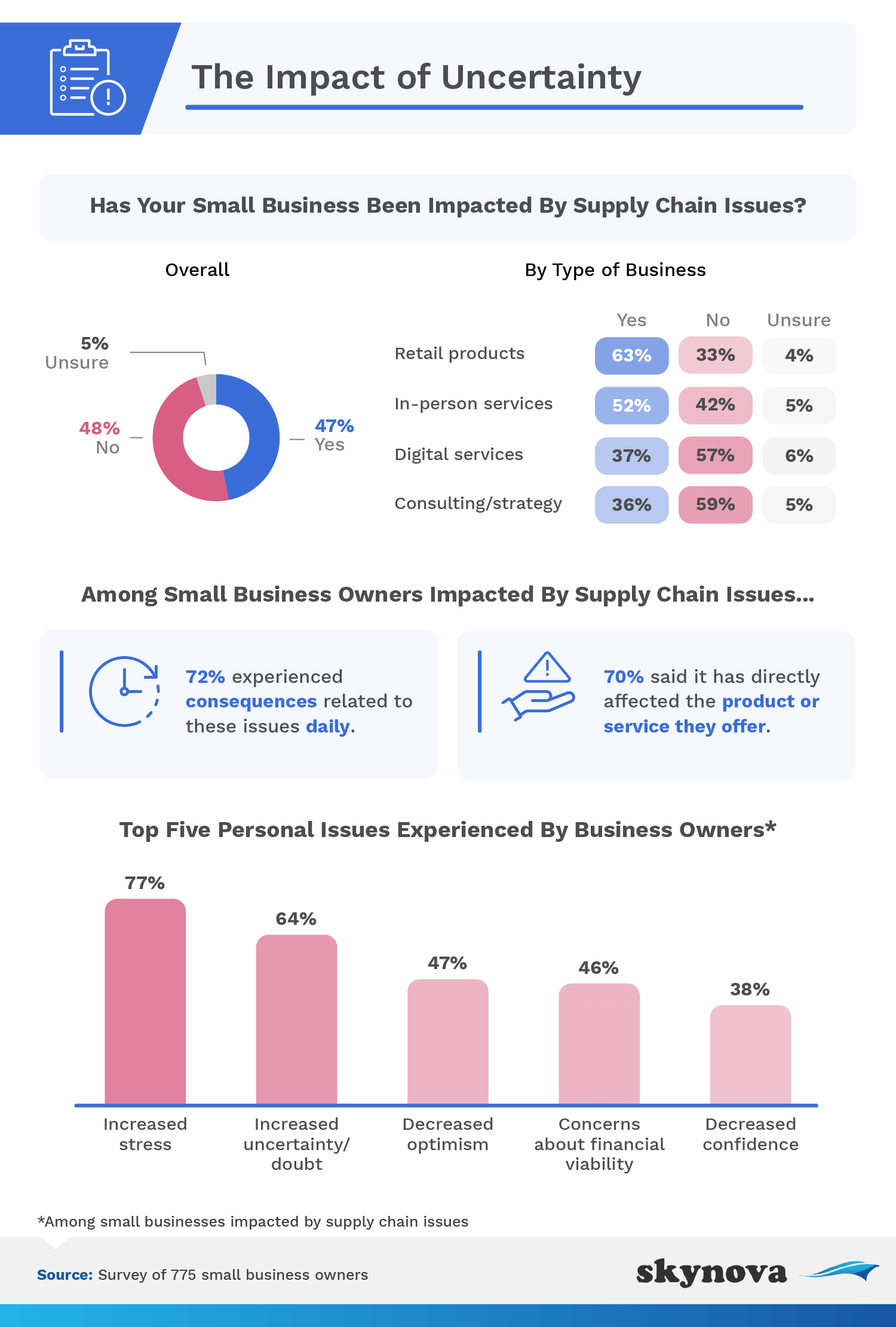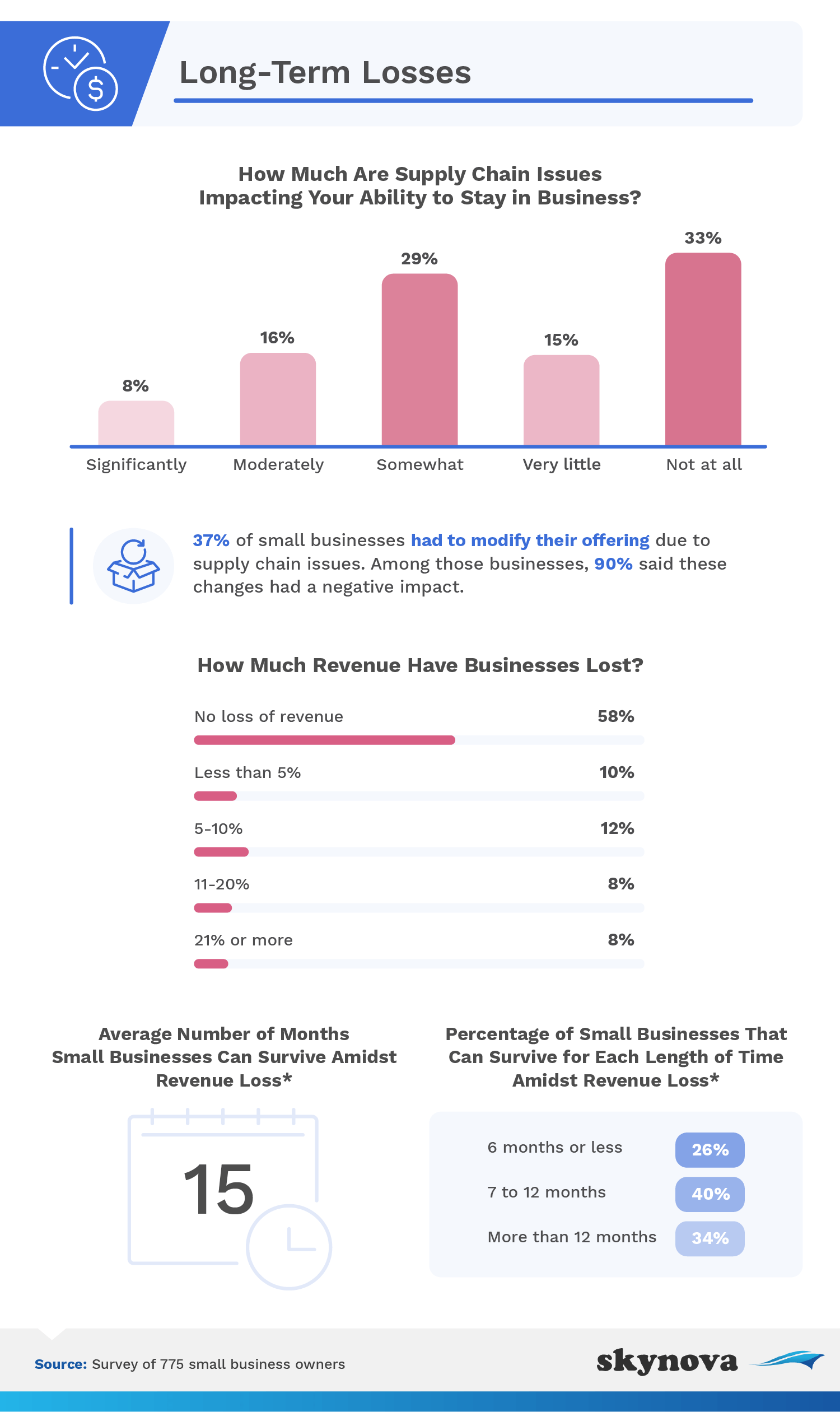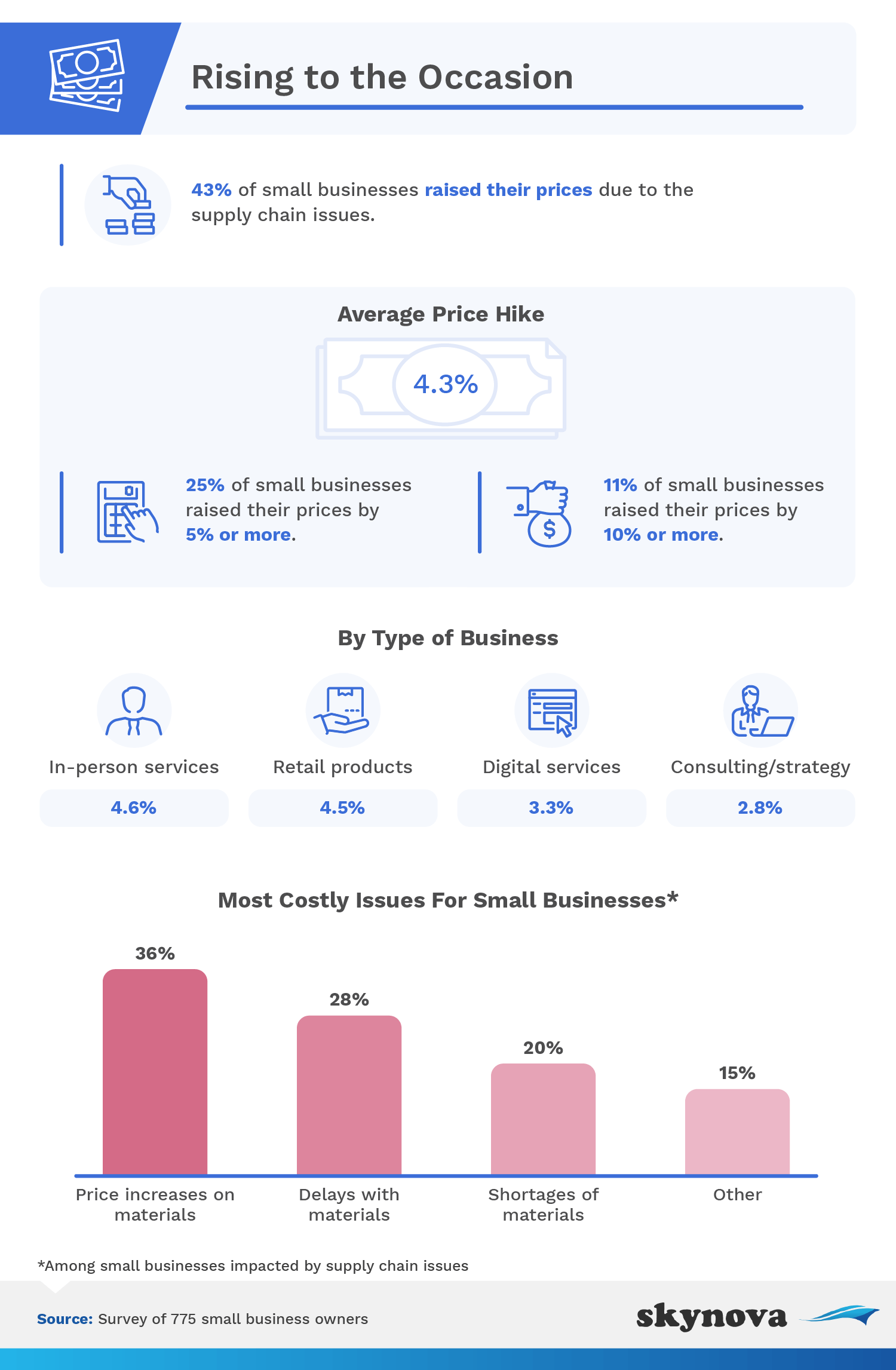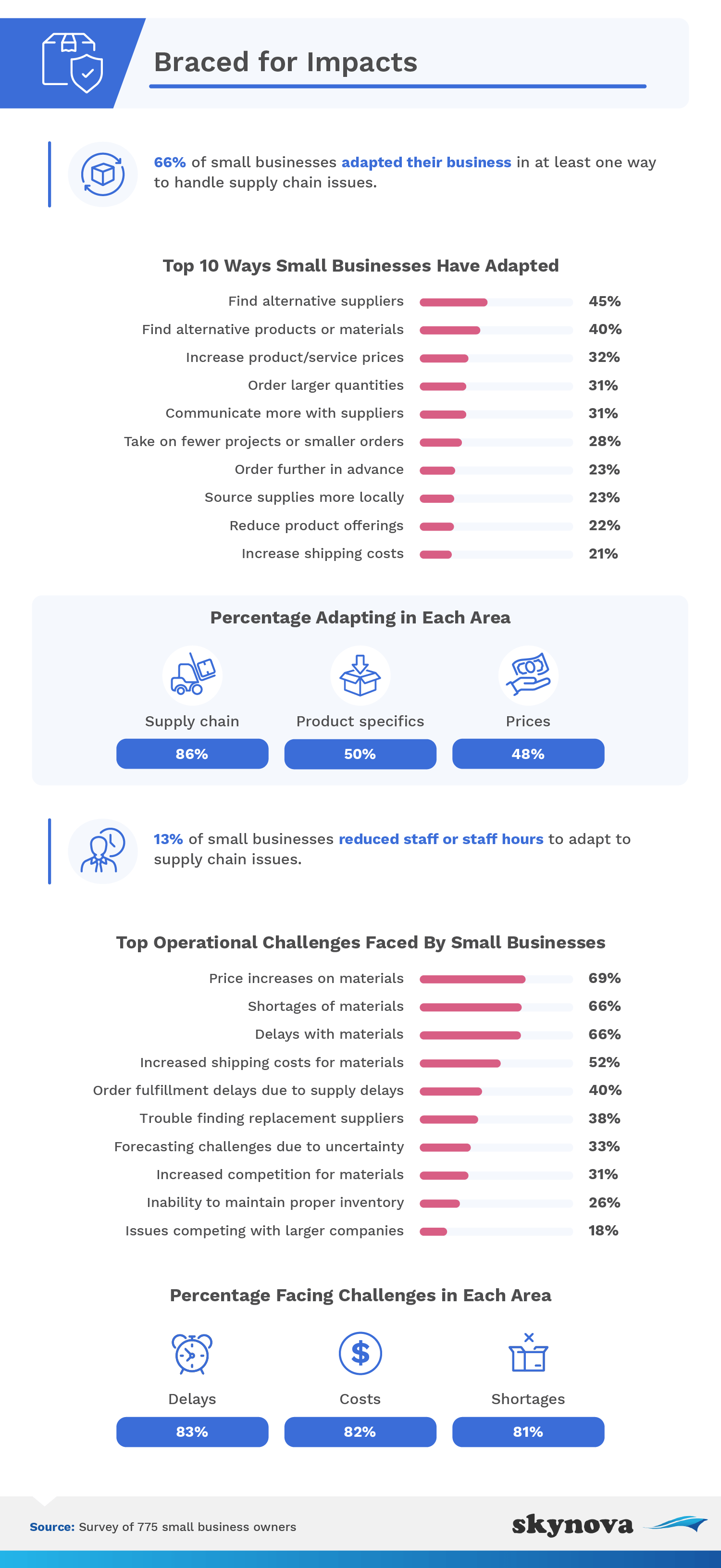
|
The world’s supply chain problem is real. If you haven’t experienced the effects yourself, just ask any small business owner: Approximately one-half are having difficulty obtaining much-needed parts or inventory.
Fortunately, many small business owners are agile and can adapt to marketplace changes. In fact, two-thirds of small businesses have already found ways to work around certain supply chain issues.
To understand how the nation’s entrepreneurs feel about the supply chain dilemma and how they’re adjusting, we reached out to 775 small business owners who shared their thoughts and perspectives.
The supply chain issue is currently dividing small business owners. Although nearly half of entrepreneurs have yet to feel its effects, 77% of those surveyed admit they’ve been experiencing heightened stress levels.

Retailers have been bearing the brunt of the supply chain issue, with 63% reporting an inability to properly stock their shelves or find replacement parts.
Slightly over one-half (52%) of in-person service providers like plumbers and repair contractors also said they were experiencing issues. Even consultants and digital service providers – over one-third of them – were feeling the effects of the supply chain squeeze.
Besides the burden of additional stress, 64% said they were experiencing an increased level of concern about future conditions, with 46% feeling regularly concerned about the financial viability of their business.
Small business owners are the backbone of the free enterprise system, and many of them operate on thin profit margins. How long can the average small business run if its revenue streams decline?

According to our respondents, most small businesses estimated they could sustain themselves for about 15 months while experiencing a dip in revenue.
However, 26% said they could only handle substantial revenue losses for six months or less. Another 40% said seven to 12 months was their limit.
So far, only 8% reported that they were greatly impacted by supply chain problems, with 16% reporting moderate issues. One bright spot was the one-third of small business owners who were not yet feeling any supply chain pains.
Some small business profit margins are thin. With 16% of small business owners experiencing an 11% revenue loss or higher, some may encounter significant challenges if supply chain issues persist into 2022.
Combined with rising inflation, the world’s supply chain issues are leaving many small business owners with little choice but to increase prices.

Over 10% of our survey's small business owners had increased their prices by 10%, with one-quarter having raised prices by 5% or more.
Although they may be a necessity to stay afloat, price increases come with risks. As consumers become more cost-conscious, the same small businesses being forced to charge more are also fighting to retain those same consumers.
Respondents reported an average price increase for most goods and services at slightly over 4%. One-quarter raised prices by 5% or more, with another 11% exceeding double-digit price hikes.
In-person service contractors and retailers led the pack with average increases of 4.6% and 4.5%, respectively. Digital service and consulting companies came in a little lower, at an average of 2.8%.
Not only were small business owners worried about increasing prices for their customers, but they were also contending with price hikes on materials purchased from wholesalers or manufacturers. At least 36% said the additional money being spent was their top issue.
Delays were the most costly issue for another 28%, with shortages and supplies topping the list for another 20%.
Like a world-class athlete, small business owners must be agile enough to avoid being surpassed by their opponents. Two-thirds of respondents did just that, saying they made strategic decisions to maintain their inventory.

Forty-five percent of small entrepreneurs chose to find alternative suppliers to meet newfound shortages. Another 32% took a more client-facing approach by increasing prices on goods and services.
One strategy to outpace potential supplier price increases is loading up on additional inventory, and 31% of respondents did just that. The same percentage more actively kept in touch with suppliers so they could make quick decisions when needed.
Others reduced their workload or attempted to keep transportation costs in check by dealing with more local suppliers, reducing inventory, or raising shipping and handling charges.
In terms of operational issues, most small business owners (two-thirds or more) were most concerned with price increases, delays, and shortages.
Between constantly seeking out new suppliers or not being able to maintain proper inventory levels, small business owners have multiple choices to juggle at the same time, all with significant business ramifications.
Small business owners play an integral role in our economy, and supply chain issues have indeed become a prominent issue in recent months. Everyone has their own way of navigating these difficult waters, from adjusting their prices accordingly to forging connections with new suppliers.
If you're a small business owner who finds tasks like invoicing, quoting prices, or administration challenging, then Skynova can help.
We have tons of templates for just about any administrative function, so check us out so you can spend more time gaining customers than designing business documents.
For this analysis, we surveyed 775 small business owners. Among those business owners, 437 were female, 325 were male, 12 identified as non-binary, and 1 identified as transgender. Our respondents ranged in age from 18 to 83, with an average age of approximately 39.
In some cases, questions and answers have been rephrased and paraphrased but clarity and brevity. To help ensure accurate responses, all respondents were required to identify and correctly respond to an attention-check question. These data rely on self-reported data. Potential issues with self-reported data include, but are not limited to, selective memory, telescoping, and other attribution errors.
Most consumers today have inflation concerns, and rightfully so. However, if you want to inflate the information in this article by sharing it with your readers, then be our guest. The only favor we'll ask is that you not share it for commercial purposes and that you link back and give credit where it's due.